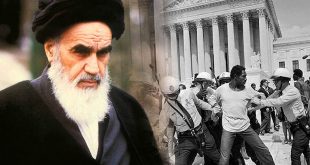The summer school aims to provide students interested in Islamic studies with a glimpse into recent scholarship on the Qurʾān, Islam and the late antique society, and the early writings in Islam (Hadith, Sira, and Tafsir).
Inekas summer school on “Early Islam” will be held in collaboration with the Institute of Arab and Islamic Studies at the University of Exeter (UK) and the Interdisciplinary Quranic Studies Research Institute at Shahid Beheshti University (Iran). Taking place every Thursday and Friday from 25 August to 9 September, the summer school will run in six days from 11:30 to 18:00 BST (6:30 to 13:00 EDT).
The summer school aims to provide students interested in Islamic studies with a glimpse into recent scholarship on the Qurʾān, Islam and the late antique society, and the early writings in Islam (Hadith, Sira, and Tafsir).
There will be presentations in both English and Persian. Hence, students interested in Islamic or Middle Eastern studies who intend to improve their Persian for academic purposes can also use the summer school as a training course.
List of speakers
(alphabetically ordered )
- Ahab Bdaiwi (Leiden University): Monotheism in Early Islam (en)
- Eléonore Cellard (Independent Scholar): The Ṣanʿāʾ Palimpsest: Materializing the Codices (en)
- Juan Cole (University of Michigan): Late Roman Law and the Quranic Punishments for Adultery (en)
- Mohammad Ghandehari (Independent Scholar): In Search of the Historical Sulaym ibn Qays (fa)
- Mohsen Goudarzi (Harvard University): A New Interpretation of the Concept of Hanif in the Qur’an (fa)
- Najam Haider (Barnard College, Columbia University): Shiʿi Identity in Early Islam (en)
- Seyfeddin Kara (University of Toronto): Study of the Textual Integrity of the Quran through Sunni and Shiʿi Traditions (en)
- Morteza Karimi-nia (Independent Scholar): Codex Mashhad, an ʿUthmānic Text of the Qurʾān in Ibn Masʿūd’s Arrangement of Sūras
- Tolou Khademalsharieh (Paderborn University): Textual Criticism on the Qur’an: A Philological, Theological and Hermeneutical View (fa)
- Ilkka Lindstedt (University of Helsinki): The Prophet Muhammad and the Constitution of Medina (en)
- Nosrat Nilsaz (Tarbiat Modares University): Dating Early Tafsir Texts: the so called Tafsir Ibn Abbas (fa)
- Khodadad Rezakhani (Leiden University): Early Islam in Sasanian Domains: Sources & Material for the Early Islamic History of Iraq & Iran (en)
- Ehsan Roohi (Independent Scholar): Between History and Ancestral Lore: A Literary Approach to the Sīra’s Narratives of Political Assassinations
- Behnam Sadeghi (University of Oxford): The Chronology of the Qurān: A Stylometric Research Program (fa)
- Nora Schmid (University of Oxford): Exhortation and Law in the Qur’an and in Early Islam (en)
- Hadi Taghavi (Independent Scholar): Muhammad and Hosea 9:7: Reception and Redaction History (fa)
- Ala Vahinnia (Institute for Humanities and Cultural Studies): Whence Come Qurʾān Manuscripts? Determining the Regional Provenance of Early Qurʾānic Codices (fa)
- Marijn van Putten (Leiden University): Quranic Arabic: From its Hijazi Origins to its Classical Reading Traditions (en)
- Holger Zellentin (University of Tuebingen): Concepts of Purity: From the Bible to the Qur’an (en)
Important Data
Date: August 25th to September 9th (Thursdays & Fridays)
Certified by: University of Exeter: & Shahid Beheshti University
Language: English & Persian
Venue: Virtual Event on the Zoom Platform
Contact: info@inekas.org
Website: WWW.inekas.org
This program was held in collaboration with the University of Exeter. In it, all the presenters who gathered from 8 countries have previously presented their efforts to solve scientific issues related to early Islam and the Qur’an in prestigious international journals or conferences.
Participating in specialized presentations in the historical studies of Islam and the Qur’an, along with reviewing related articles, can provide a basis for those students and those interested in Islamic studies who want to strengthen their specialized Persian in this field.
This course seeks to read the history of the Qur’an and Islam using interdisciplinary approaches and modern methods. These approaches include Codicology, stylistics, literary criticism, textual criticism, and source criticism.
In this course, all participants can join the course’s telegram group, engage in
discussion and networking with other researchers, and, in addition to creating new connections, use the course’s exclusive supplemental content.
 Ijtihad Network Being Wise and Faithful Muslim in the Contemporary World
Ijtihad Network Being Wise and Faithful Muslim in the Contemporary World
